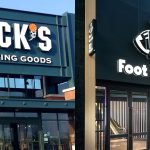Reebok and adidas executives continue to field a barrage of questions about the positioning of the two brands in the market and the future of league deals that many see as the real value in the deal that created the new combined business. Key execs from the adidas Group, Brand adidas and Brand Reebok last week presented their strategy for the newly merged company to investors and analysts in New York City after a similar presentation in London the week before (SEW_0616).
The key challenge from the crowd appeared to be the Team Performance positioning for adidas versus the Individual Performance positioning for Reebok. The audience, which could reflect the sentiments of the market as a whole, seems to be having trouble reconciling Reeboks NFL and NHL league deals with the Individual Performance positioning of the brand. What looks to be getting in the way is the term “primary positioning” for each brand rather than the absolute positioning many are reading into the statements.
Management said they were focused on solving “short term challenges” at Reebok, including dispelling market misperceptions about taking RBK down market. They expect adidas will “strengthen RBK as a performance brand,” citing the Iverson 10 and Premier running line as two examples. Running, womens branded apparel, licensed apparel, basketball and soccer were listed as key growth areas for RBK.
The over-distribution of the Reebok brand was also a discussion point and one that will apparently get some attention. Management talked about the need for a distribution strategy as part of building a performance brand. The focus distribution for that strategy is apparently sporting goods and better department stores.
Management said that Reebok sold more into the market than the market could take in 2005, creating an over-saturation of inventory in the market that affected the order backlog at year-end. They felt confident they were “on the way to clearing” the goods.
As Sports Executive Weekly reported in SEW_0608, Reebok President and CEO Paul Harrington had started to put together a new product team to address the changes in store for the brand. Long-time Reebok veteran John Frascotti had been tapped to oversee performance product and Harrington has now appointed Glen Giavanucci, the former Puma exec that had been running the “directional accounts” business in the U.S., to run the lifestyle business for Reebok.
SEW recently learned that Bob Munroe has been appointed president of the U.S. business. David Kahan, Russell Athletics former president of retail accounts that had been running department stores for Reebok, has been elevated to SVP of Reebok U.S. sales. Chris Walsh will continue as VP of strategic accounts and Kevin Ryan will continue in his role as VP of field sales and team & specialty accounts. TJ Kelly, the former VP of apparel sales that was most recently director of sales for the moderate channel, has been appointed VP of national account sales. John Bulthuis, who had been running the Foot Locker business, has been elevated to VP of directional accounts, independents, and better department stores. Doug Kosak, who had also at one time run the Foot Locker business, but has more recently run the footwear planning group, has been appointed head of all sales operations and planning.
All positions will report to Kahan and will manage footwear, apparel, and accessories in hopes of presenting a total brand presentation at retail.













